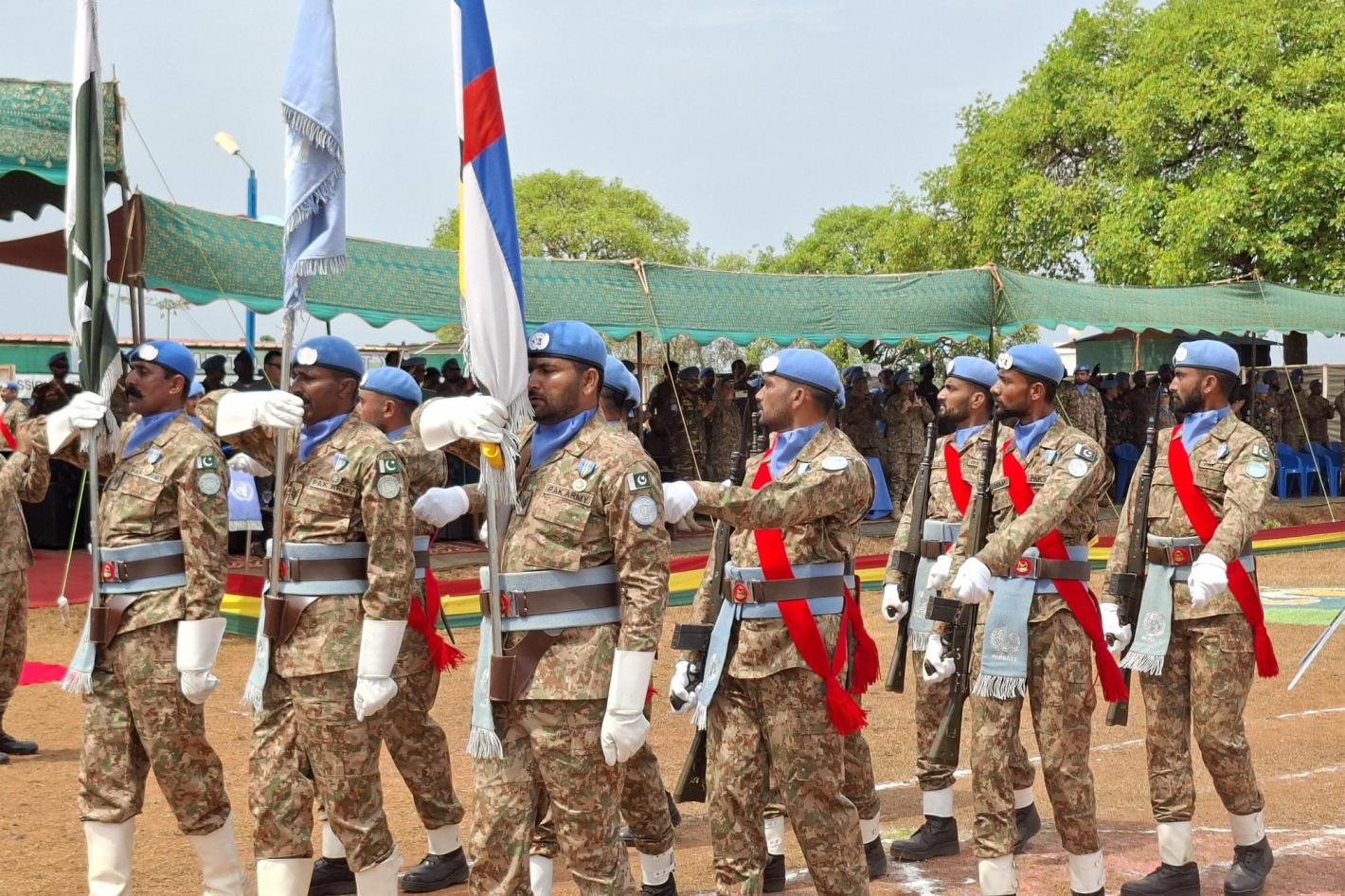70 members of the marginalized and vulnerable group of sex workers, represented by their association in the Central African Republic (CAR), attended an educational session on preventing Sexual Exploitation and Abuse (SEA) organized by the Ministry for the Promotion of Women, Family and Child Protection, MINUSCA and other partners at the Catholic University Center in Bangui on Friday, 17 July 2020.
“We are very conscious of the impact of Covid-19 on the most vulnerable groups in society. Reason for the Mission and other stakeholders working on preventing sexual exploitation and abuse and gender-based violence to initiate today’s educational talk with the association’s members,” said Alexandre Cudgenslhey, MINUSCA Conduct and Discipline Officer.
Explaining to the participants, aged 18-45, what constitutes forms of sexual exploitation and abuse, such as interactions without mutual consent, the MINUSCA team and trainers from the Non-governmental Organization (NGO) Urgence Résilience et Développement en Afrique (URDA) and Field Victims’ Rights Advocates (FVRA) sought to raise awareness on preventing SEA among the group – one of the most marginalized and vulnerable in the society.
The overall objective: stopping all forms of sexual exploitation and abuse by UN staff members. The session was organized in coordination with the Ministry for the Promotion of Women, Family and Child Protection and the CAR Gender-Based Violence (GBV) Sub-Cluster and it communicated UN standards of conduct on SEA, MINUSCA’s reporting mechanisms as well as the scope of assistance to SEA victims and children born as a result of exploitative relationships.
“We want them to know that the UN has a zero-tolerance policy on SEA, that the organization is working to proactively inform vulnerable groups about the channels through which to file complaints. We also want them to know about the UN’s designated victim rights’ advocates,” said Conduct and Discipline Officer Cudgenslhey. FVRAs are the main point of contact for all victims on the ground.
According to him, the effects of Covid-19 on staff members such as confinement, stress and cancelled recuperation travel could increase vulnerability to SEA for the most marginalized groups in society. He noted that the voices of the most vulnerable ‘should be at the forefront of policies to address SEA, in line with the Secretary-General’s victim-centered approach’ to preventing and responding to sexual exploitation and abuse perpetrated by United Nations personnel at field level that is championed by victims’ rights advocates.
“They may not know what SEA is and yet many of them live it and suffer from it in their daily lives. Working together with MINUSCA and other partners, we hope to bring about a change of attitudes and behaviors around SEA so that the rights and dignity of the participants are respected,” said Glodi N’garrit, Joint Coordinator for the NGO URDA.
“I learned today that if you are being forced to perform any actions by a member of the United Nations, you can call the number 4044 at no cost to report abuse. The same applies if you fall pregnant by a member of the United Nations or if you are being sexually abused in any way,” said one participant.






